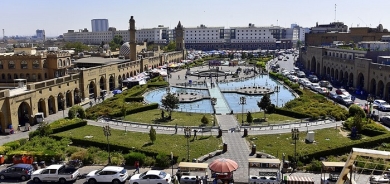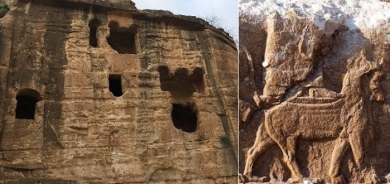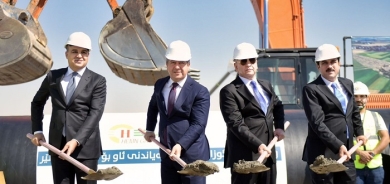Syria security forces 'open fire at Kurd's funeral'

Fifty-thousand people were at the funeral in Qamishli, the home town of Mishaal al-Tammo.
He was shot dead by unknown gunmen on Friday.
Reports said as many as five people died during the funeral, which turned into a protest against the regime of President Bashar al-Assad.
"All of Qamishli is out today, the funeral is turning into a massive protest," Kurdish activist and lawyer Mustafa Osso told the Associated Press.
Saturday's violence is likely to further inflame anger in Kurdish areas, where the killing of Mr Tammo seems to have had a galvanising effect, says the BBC's Jim Muir in Beirut.
The opposition has accused the regime of killing Mr Tammo. One group described it as a "dangerous turning-point" in the regime's handling of the uprising.
Mr Tammo was expected to play a leading role in the recently-established opposition Syrian National Council, which includes most anti-government groups.
The official Syrian media reported that he had been killed by "armed terrorist groups" because of his opposition to foreign intervention in Syria. Either way, most Kurds and activists - and their supporters abroad - seem to be convinced his death was the work of the Syrian government, says our correspondent.
It is a view shared by the US state department which blamed the Syrian authorities for the deaths, reportedly calling the killing a "clear escalation of regime tactics".
Unrest continues elsewhere in Syria. At least eight people were killed in protests following Friday prayers.
There were more protests - and deaths - after Friday prayers in Homs, activists reported
The deaths occurred in the central city of Homs, the Damascus suburb of Douma and in Zabadani, near the Lebanese border, activists reported.
Mr Tammo's son and a fellow Kurdish political activist were also wounded in Friday's shooting, reports said.
Mr Tammo was in the Kurdish Future party and had recently been released after spending more than two years in jail.
He was a vocal critic of President Bashar al-Assad and had also angered powerful Kurdish parties.
President Assad granted nationality to thousands of stateless Kurds in eastern Syria in April in a bid to address some of the grievances fuelling opposition to his regime.














